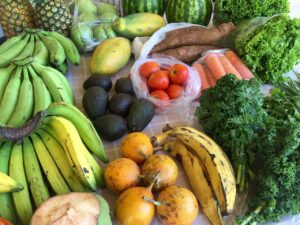
Source: Pixabay
Hypersensitivity is another name for Inflammation. It can be described as the biochemical response to infection, disease conditions, injury, and trauma. Inflammation is a component of the process of healing.
The five fundamental signs which characterize this response are pain, heat, redness, swelling, and loss of function. The episode wanes away when the malady concludes. In case the episodes are prolonged, recurrent and intense then the disease is termed chronic or habitual inflammation. If the condition is chronic, then support is afforded by lifestyle interventions like nodal changes in dietary habits.
This composition explores the clinical profile of inflammation and the role that diet can play in potentially helping in the reduction of inflammatory symptoms. Reasons, why an individual may suffer from inflammation, are numerous. Obesity, hormonal imbalance, smoking, substance abuse, rheumatoid arthritis, and chronic stress are some of the well-studied examples.
Gradually, long-term inflammation can increase the risk of diseases like cardiovascular disease, diabetes, malignancy, arthritis, and chronic obstructive pulmonary disease (COPD).
One of the most effective ways to reduce the intensity of inflammation and reverse the pathos is through the foods we choose to eat.
Research has shown certain foods to be definitely capable of risk reduction in inflammation and these are highly recommended.
The typical anti-inflammatory diet includes the following fruits, vegetables, lean animal protein, nuts, seeds, and healthy fat. Many foods have anti-inflammatory effects that help reduce the risk of illness, while others contribute to inflammation.
An anti-inflammatory diet certainly has these food constituents: tomatoes, olive oil, clarified butter, green leafy vegetables, such as spinach, kale, and collards, nuts like almonds and walnuts, fatty fish like salmon, mackerel, tuna, and sardines, and fruits such as strawberries, blueberries, cherries, and citrus fruits.
So what is the “sensitive approach” to an inflammation-fighting diet? The answer is really simple. Having more plant-based foods, rich in antioxidants, polyunsaturated fatty acids. Consumption of less red meats and processed foods is also recommended.
The foods to avoid are also of great significance as they aggravate an already existing inflammatory condition. They include refined sugar, excessive use of salt, refined flours, foods with additives, and food colors. If fried snacks are consumed frequently, then the onset of hypersensitivity is much more predisposed. There are some myths regarding certain foods and their role in inflammation. Yes, eggs are an anti-inflammatory food. Additionally, they are a source of vitamin D, which has anti-inflammatory effects. They are also a good source of protein and B vitamins.
Coffee contains active molecules with antioxidant and anti-inflammatory properties which may help in the reduction of low-grade inflammation and protection against certain pathological conditions.
Researchers have found that not only do all types of bananas reduce inflammation, but they also had an antioxidant effect, which helped keep immune cells functioning in an optimal manner.
Based on the body of science, dairy foods like milk, yogurt, and cheese do not contribute to inflammation and can certainly be a part of anti-inflammatory diets. If one has a food sensitivity to either oats or grains, then yes, oats are inflammatory.
The requirement of the individual himself is to recognize his own tendencies and absolutely understand that “WE ARE WHAT WE EAT”.
Sign up for the QuackTrack.org newsletter below!














